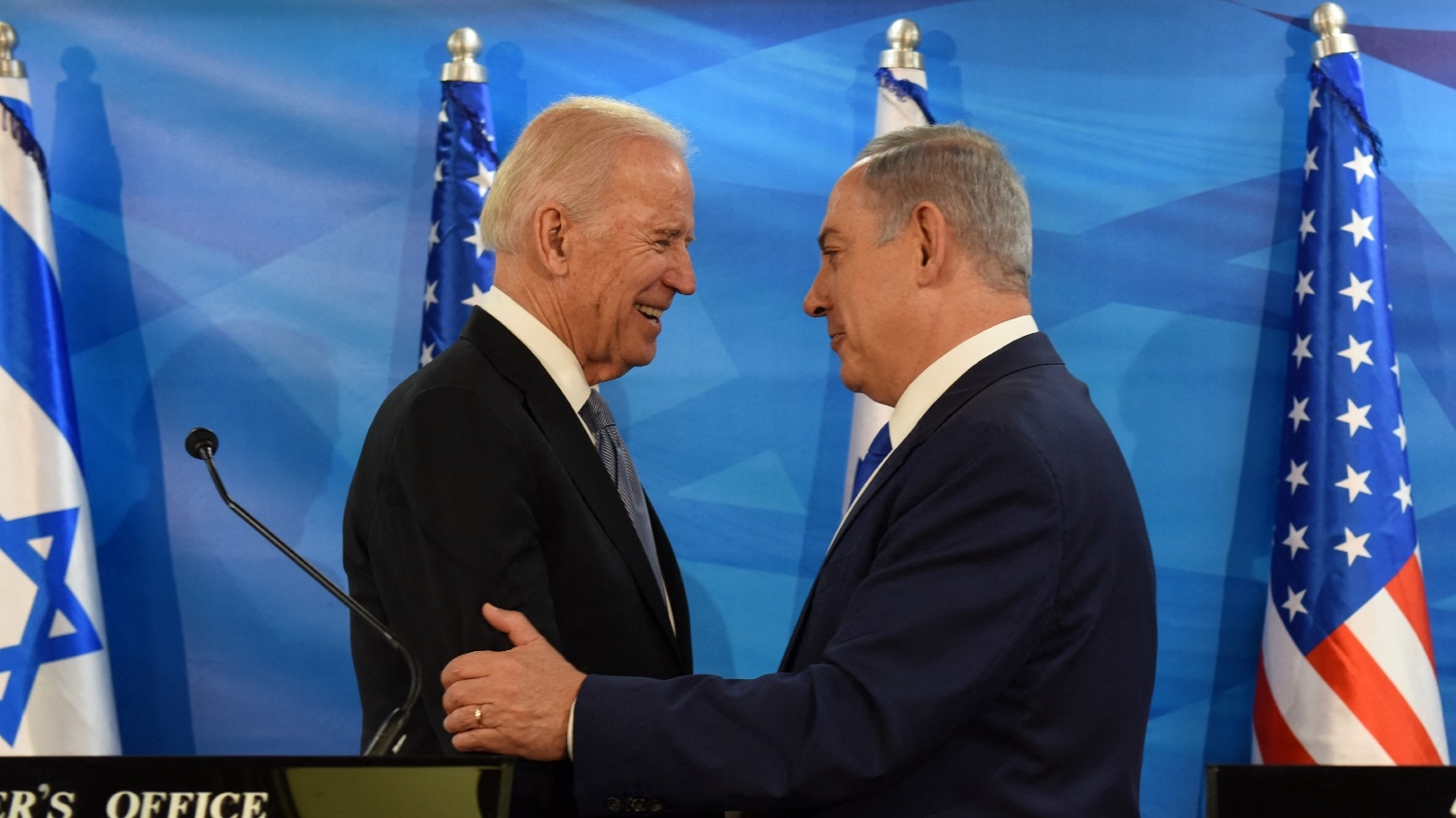US to stop funding Israeli science and tech projects in occupied West Bank

The Biden administration informed Israel that Washington will no longer transfer funds to research, science or technology projects taking place in the occupied West Bank, reversing a US policy implented in the waning weeks of the Donald Trump presidency.
The announcement was first reported by the Israeli radio channel, Kan. A Biden official later told Haaretz that the directive only affects institutions located over the 1949 armistice line which separates the Palestinian territories of the West Bank, East Jerusalem and the Gaza Strip from Israel.
"The Department of State recently circulated foreign policy guidance to relevant agencies advising that engaging in bilateral scientific and technological cooperation with Israel" in the occupied West Bank, East Jerusalem and the Golan Heights" is inconsistent with US foreign policy, a State Department spokesperson told Axios.
According to Axios, the notice was delivered to Israel two weeks ago.
The move reverses a Trump-era policy decision in late 2020, which allowed US taxpayer funding to be used for science and technology projects in Israeli settlements in the occupied West Bank for the first time since 1967.
Stay informed with MEE's newsletters
Sign up to get the latest alerts, insights and analysis, starting with Turkey Unpacked
The agreement to reverse the policy was signed in October 2020 at the illegal West Bank settlement of Ariel, which was built in 1978 on land stolen from the villages of Salfit, Iskaka, Marada, and Kifl Haris.
The area, now the site of an Israeli university, was chosen as the venue for a deal that organisers said would open a new avenue of US scientific cooperation with Israeli researchers.
The Trump administration's move was one of many concerning West Bank settlements pushed through by former US Secretary of State Mike Pompeo and US ambassador to Israel, David Friedman.
The State Department decided to reverse the Trump-era policy not long after Biden took office, but a source told Axios that it didn't need to take any steps to implement the ban until recently, when researchers from an institute in Israeli settlements applied for a grant.
Under the Trump administration, Pompeo announced the US no longer viewed Israel’s settlements on West Bank land it captured in the 1967 Middle East war as “inconsistent with international law”, essentially throwing out the 41-year-old legal opinion which had long been the basis of US policy towards Israeli settlements.
Pompeo also was the first US secretary of state to visit an illegal Israeli settlement in the Palestinian West Bank and the Syrian Golan Heights, and also implemented a policy stating that all exports from the West Bank's Area C - whether made by Palestinians or Israelis - would be branded as "Made in Israel".
The former secretary of state's moves angered Palestinian leaders, who have long argued that settlements impede peace efforts and make the creation of a future Palestinian state all but impossible - but the shift delighted Israel.
It remains to be seen whether Biden will overturn the rest of the Pompeo doctrine, which was formulated by the Kohelet Policy Forum, the right-wing Israeli think tank behind Israel's attempted judicial overhaul.
The Biden administration's decision also comes as violence has engulfed the West Bank, following Israel's raids on the Jenin refugee camp last week which left seven Palestinians dead.
The raids were followed by an attack by two Palestinian gunmen that left four Israeli settlers dead.
Israel continued to ratchet up tensions when it carried out its first drone strike in the West Bank in almost 20 years, leaving three Palestinians dead. Since the start of this year, Israeli forces and settlers have killed at least 171 Palestinians, including 26 children.
Middle East Eye delivers independent and unrivalled coverage and analysis of the Middle East, North Africa and beyond. To learn more about republishing this content and the associated fees, please fill out this form. More about MEE can be found here.





